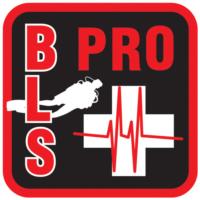
DAN courses include more than just Oxygen. When most people think of Divers Alert Network two things come to mind. Dive Accident Insurance and Scuba Oxygen First Aid. My training partner Larry Zettwoch (
z-man) was there in the very beginning. His Instructor Number is 25. Since that modest start in a small closet at Duke University DAN has grown into a research and training force in the Scuba industry. There are now 9 Dive Safety courses for Recreational Divers, 1 Dive Safety course for Professional Divers and a Hyperbaric Medicine course for Medical Professionals. Whether you are a Diver or an Instructor filling out your Dive Safety toolbox with training in these courses has become an absolute necessity.
The remote nature of dive accidents, whether a few hours from shore or days from civilization, frequently requires more advanced levels of care than are offered by traditional or entry-level CPR programs. DAN Instructors and Instructor Trainers will now be able to offer a healthcare provider-level basic life support program for their student and divers. BLS Pro was rewritten from the ground up in 2007 and is designed specifically for situations where Emergency Medical Assistance is more than 10 minutes away. This definition is essentially almost every Scuba Diving scenario out there.
Called Basic Life Support for Dive Professionals (BLS Pro), this program is ideal for dive professionals and divers interested in understanding professional-level resuscitation techniques. This program is designed to be applicable to the diving market, including scenes and scenarios from dive situations, as well as the non-diving/healthcare market. Coupled with DAN’s existing Training Programs and the new Advanced Oxygen First Aid program, DAN Instructors and Instructor Trainers will now be able to offer a complete diving emergency program. BLS Pro also addresses basic life support skills for adults, children and infants.
How many of us are on a dive boat that is from 20 to 240 minutes offshore at any given moment after the engines are started? Getting an injured diver into medical care is critical for a positive outcome. Lay provider courses simply to do not provide the level of information necessary to care for the injured diver with any degree of effectiveness. Learning how to provide intermediate level care until you are able to get the diver transferred to the next level of Emergency Medical Care is paramount to ensuring a positive outcome.
Objectives Basic Life Support for Dive Professionals is a professional-level basic life support program designed to teach advanced skills to dive professionals, divers who find themselves in remote situations where emergency help is not immediately available and interested others who are involved with diving.
This is an 8-hour program, although it is skills dependent program, not time dependent. It is video driven. The instructor shows short video segments, demonstrates the skills in real-time, does a second skill demonstration breaking down key steps as appropriate and then conducts student practice.
The program covers the broad skill areas including:
- Initial assessment
- Airway management
- Breathing and ventilation
- Circulation
- Control of bleeding
- [span style="mso-fareast-font-family: ’Times New Roman’; mso-bidi-font-family: ’Times New Roman’"